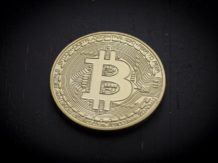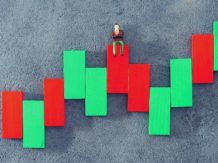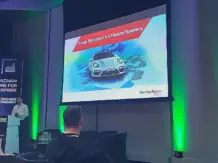Using the “wisdom of the crowd” in conjunction with blockchain and smart contracts is a young but very promising direction for predicting any events.
Crypto enthusiasts remembered 2016-2017 as a period of mass insanity. Against the backdrop of numerous ICOs, sometimes in a matter of hours or even minutes collecting millions of dollars, blockchain and smart contracts began to be “stuck” anywhere: from online casinos and “cryptocotics” to the presidential elections and international cargo transportation.
Subsequently, it became clear that far from all areas of life, blockchain can really be beneficial and increase efficiency. Somewhere it turned out to be too expensive and complicated, but somewhere it is simply not needed.
But in a number of cases, blockchain really became a breakthrough technology, which provided the emergence of new areas for business. One of them is prediction markets. They perform two functions: they allow everyone to bet on the outcome of any events, as well as use the “wisdom of the crowd” to predict using smart contracts. Roman Nelyubin, CEO and co-founder of the Opinion block-chain crowdfunding Opinion platform, spoke about the current state of the prediction markets and their prospects.
Prediction Market Betting
The internal structure of the prediction markets platform for betting on the outcome of events looks quite simple. This is a package of smart contracts on Ethereum or a similar blockchain that controls the acceptance of bets and their distribution to the winners.
The most famous platform of this type is Augur. It is based on Ethereum and uses its own REP token for operations. Any user can create their own prediction market and invite others to participate in it. Bets can be made on any event – from the outcome of the presidential election to oil prices or weather forecasts.
The creator of the prediction market selects the event, its outcome, decision time and the so-called “reporter”, which tells the smart contract the right option. For his work, the “reporter” receives a small bonus in tokens, but if he provided incorrect information (his decision can be appealed by a vote of the participants), the system fines him and takes tokens from his balance.
Market participants place bets, sending transactions to the address of one of the options, and expect a result (event occurs). Until the event occurs, they can buy and sell bets on the built-in exchange. After the outcome of the event becomes known, the smart contract distributes all delivered tokens among the participants who made the correct forecast.
Augur was developed and tested for more than two years, but was officially launched only in July 2018. Both during testing and after launch, several scandalous stories were associated with this startup.
So, in August 2018, the “white hacker” found a vulnerability with the help of which an attacker could give inaccurate information to the participants of the prediction market in order to force him to transfer tokens or disclose any data. The developers had to urgently release a new version of the contract.
In March of this year, a vulnerability was discovered in the Augur architecture, which allows fraudsters to create prediction markets, and later forcefully close them using various tricks, such as spoofing the end date and time. When the market closes automatically, tokens for bets made are returned not at the price at which they were placed, but at the average price between all participants.
Thus, a fraudster who made a bid at a knowingly low price remained positive during the market close. This vulnerability is still not completely closed and they are being fought with “administrative” measures, using warnings. Finally, Augur co-founder Matt Liston even founded his own religion on the blockchain.
Another Ethereum prediction market platform is called Gnosis. In April 2017, the project conducted one of the “lightning-fast ICOs”, collecting ETH for $ 12.5 million in 10 minutes. Unfortunately, the work of programmers was much slower. Except for some technical aspects, Gnosis is very similar to Augur, but the platform is much less popular due to the weak activity of developers and still has not reached a full launch.
The Wisdom of the Crowd to Predict
The second way to use prediction markets on the blockchain is to predict important events using “crowd wisdom,” that is, aggregating the opinions of as many people as possible. This is a kind of decentralized social survey, consisting of one or more questions, and conducted on the Internet among an audience that is not limited by geographical, political and social barriers.
Among startups working in this direction, Cindicator, founded by a team of Russian programmers, can be noted. It offers clients predictive analytics of the movement of cryptocurrency rates and other assets and automated trading strategies based on it. The source data for the forecasts are the results of surveys conducted among platform users trading in financial markets. The platform then analyzes the data using artificial intelligence and sells it to customers. To participate in the program for free, without access to analytics, just download the application and make forecasts. For correct forecasts for the month, the system calculates a reward in tokens.
Similar developments are conducted by Santiment, according to statements on the site, trying to “combine the power of computers and human intuition.” This startup also offers services for traders based on the “wisdom of the crowd”, but focuses on a network of individual investors, making forecasts for the totality of their trading decisions.
Launched in 2019, the Opinion platform uses the “wisdom of the crowd” to predict the outcome of a wide variety of events and find out public opinion. It is similar to prediction markets, but more interactive and social. Users get full access not only to the voting results, but also to each individual opinion. The platform does not charge any fees. A predictor who correctly predicts what will happen will receive a reward and expert status. Any user can become a leader in any field. “Under the hood” of the platform is a package of smart contracts on the EOS blockchain that stores the results of collective forecasts. Distributed registry technology ensures the objectivity and immutability of the data collected.
Blockchain forecasts for corporations
Prediction markets may be of interest to banks, brokers and other financial market players, as well as companies involved in the processing of “big data”.
But at the moment, of the major Internet companies, only Google was interested in this direction of blockchain development. The corporation has begun a partnership with startup Chainlink, which works on a forecasting platform. Google plans to integrate Chainlink blockchain applications, including prediction markets, into the Google Cloud cloud platform.
The blockchain forecasting services are also offered to corporate clients by the Cultivate Labs startup. The company’s services include not only market forecasts, but also calculations of the effectiveness of operational planning, sales strategies and risk assessment. Among her clients there are well-known companies such as LG, Twitch, Broadspectrum.
Prediction Market Prospects
It would seem that prediction markets are far from all politics. But in October 2018, the U.S. Commodity Market Regulator (CFTC) warned smart contract developers that they could face restrictions if so-called “event contracts” were concluded on their platforms, especially those related to antisocial actions, including wars, killings, terrorist acts, etc. Similar contracts do indeed take place on blockchain platforms, including Augur. However, this warning at the moment had no consequences.
As the blockchain industry develops, so will the prediction markets. They can be useful both to private communities, and to big business, and even to the state.
Conducting surveys and research on the Internet is still not trusted, since the risk of fraud is too great. Blockchain can become a decisive argument in this area due to its well-known properties – transparency and the impossibility of changing data. And processing the results of these surveys using artificial intelligence and combining them with other “big data” will take forecasting of events and trends to a new level.
Now the development of forecast markets is hindered, rather, not by the lack of demand, but by the lack of reliable blockchain solutions that can satisfy the needs of large businesses. The emergence of new, more productive blockchains and the efforts of many developers will sooner or later lead to the creation of truly convenient and massive applications.















